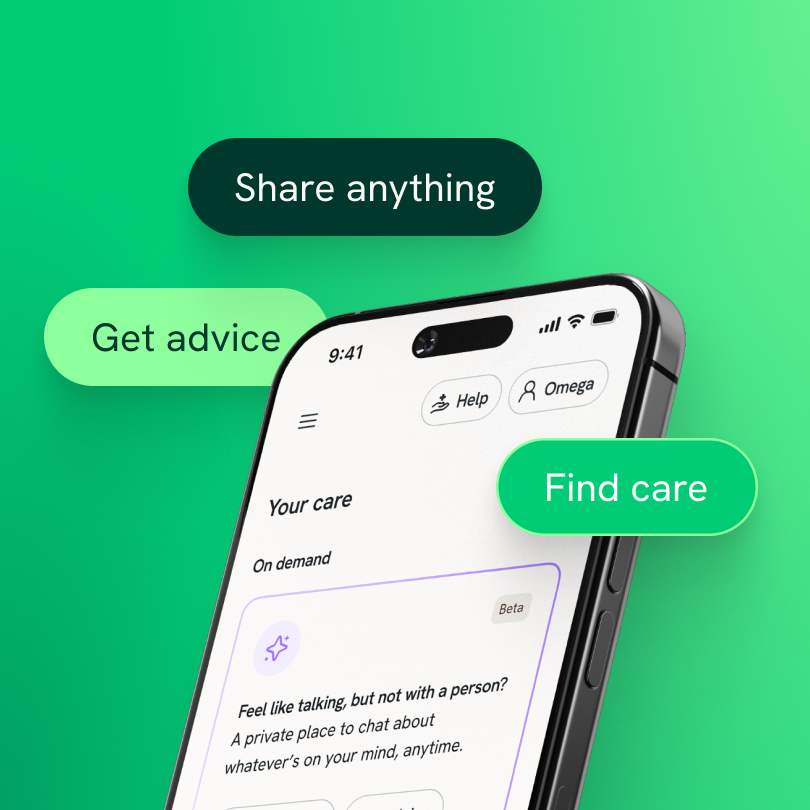HR leaders are well aware of the large gap that often exists between the availability and use of employee benefits. Stigma, information overload, and motivation can keep individuals from getting the care they need.
This is where our Care Navigators come in. Each one is a licensed, master’s level clinician who provides guidance and personalized support to help employees feel better, faster.
Care Navigators identify and dismantle barriers to care
When an employee joins Spring Health, they’re assigned a dedicated Care Navigator who works with them throughout their mental health journey. Care Navigators are available 24/7, providing unlimited support in a variety of ways—including making care recommendations and assessing and de-escalating risk during a crisis.
Spring Health regularly rescreens enrolled employees to ensure they’re doing better. If their symptoms are getting worse, their Care Navigator proactively reaches out to see what they need.
This month we’re talking to one of our Care Navigators, Kristina Robinson. She’s sharing her clinical experience, how she partners with providers, and what she wants you to know about Care Navigation.
Amy: Tell us about your clinical background and experience.
Kristina: I’m a licensed marriage and family therapist, based in North Carolina. Before coming to Spring Health, I was working in private practice on the rural outskirts of Charlotte. I’ve worked mainly with children, young adults, and couples—both virtually and in person.
Amy: What brought you to Spring Health?
Kristina: I wanted to make more of an impact to a broader range of people. I felt like this Care Navigator position was a way to reach a lot of people.
When I saw it, it was so cool and new to me. You think you can only do therapy as a therapist. I didn’t even fathom that I could be useful in this type of area.
Amy: It sounds like your days are all different.
Kristina: Yes! In a good way. We have scheduled calls, but are also available for unscheduled things that come in. We answer tickets to work on items that need to be addressed clinically.
I love speaking with people directly, but also feel like I’m able to use my expertise to address so many different areas.
I didn’t really know what to expect when I started, but once I got into the role I could see where Care Navigation fits into the bigger picture of the company.
People will always need someone to help them navigate the process. For people who need care and are trying to get to care, there can be several steps in between that are overwhelming to try to navigate. I think that’s a really awesome thing to have.
That's what this Care Navigator role is: caring humans with a background in mental health.
Amy: What about this role do you feel most inspired by or connected to?
Kirstina: We’re making history being at Spring Health. The growth of the company, how fast we are able to get people into care, the resources that we have—it’s all unprecedented.
Even though my interactions with employees may be brief, I still know (and they’ve told me) that when I’m talking to them, I could be making the difference in their outlook about therapy, their situation, and themselves.
During a call, members will say, “I almost didn’t pick up but I’m glad I did, and I’m even a little excited about this first session.” Wow. That’s awesome. I’m just doing my job!
Amy: What do you want our providers to know?
Kristina: We’re here to support them as fellow therapists. Clients often need additional resources or care. We provide those resources and facilitate connection to care.
As clinicians ourselves, we’re able to understand the needs of clients and work collaboratively with providers. They don’t have to shoulder it all alone .
I always encourage providers to look at my notes and use them to build on. Likewise, providers have more time with their clients and have nuanced insights that we’ll use when we’re gathering resources or making referrals.
We’re all operating with the same goal of making sure employees get the care that they need.
Amy: How do you take care of yourself after supporting others all day?
Kristina: I have a dedicated room for work and I really don’t go in that room after hours. This allows me to mentally plug in and then unplug.
I do things to engage my brain and get lost in something. I hang out with family, enjoy being outside and soaking up good weather—all the things that make me feel good. I also try to be present in every moment.
There is no one size fits all, and clear boundaries are supported here. This team is awesome. I’m really big about leaving work at work and I can do that here. I know the work is going to get done and I'm not leaving anything hanging when I leave, because our team is so dedicated.
I never get a message after work hours. It’s expected that I’m fully dedicated to work during work hours, and my time away is protected.
Elevated support for your leaders
Our Care Navigators also partner with managers to ensure they have the tools and resources their employees need.
Learn how they provide one-on-one support, including guidance for difficult conversations, different ways to address an employee situation, and help with managing stress.






.png)











.jpg)


















